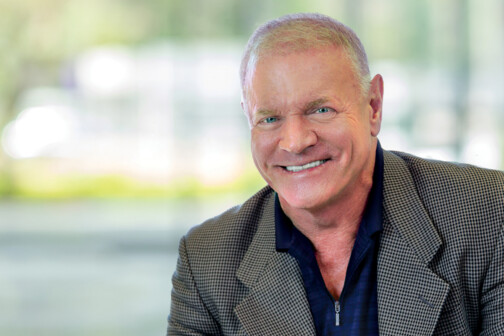Farmers Branch-based wellness brand Neora’s victory over the federal government’s 2019 pyramid scheme charges may seem like a beachhead against the criticisms and legal attacks on other multilevel marketers, but the reality of Neora’s business model may make the win difficult for other brands to replicate should they find themselves in the crosshairs of future federal prosecution.
Neora’s victory was the first win for direct sales organizations against the federal government since the 1970s and attracted great attention amongst others in the industry, as reported in the Dallas Morning News earlier this year. The government sued Neora and its CEO, Jeff Olson, accusing the brand’s partners of receiving more compensation from recruiting new brand partners than from retail sales, a hallmark of pyramid schemes. The brand spent $23 million fighting the charges and won.

Neora sells several beauty and wellness products through its brand partners in the same way Mary Kay and AdvoCare have direct sales representatives as independent contractors. The salesforce gets discounts on products they can sell to their network and customers, and also get commissions and bonuses for recruiting and training other contractors. The industry does $4.3 billion worth of business in Texas alone, and Neora is one of the most successful multilevel marketing companies. Since Neora’s founding in 2011, it has sold 40 million products worldwide and has been one of INC 500’s fastest-growing companies. It has employed 400,000 sellers during that time, reaching 1.7 million customers, and has 140 corporate employees. This month, Direct Selling News honored Olson with its Bravo Impact Award and Bravo Leadership Award.
Despite the success, they were swept up in the FTC’s ongoing investigations of MLMs. Olson shared some of the costs of being charged by the Federal Trade Commission of being a pyramid scheme. While the law may technically say innocent until proven guilty, Olson said it felt like the opposite, with social and traditional media seizing upon the legal fight, damaging the company’s reputation with current and future customers and sellers.
Its lenders downgraded Neora, business insurance rates went up, more than half of the company’s suppliers stopped doing business with it, and Olson lost half his C-suite. “Most won’t survive the collateral damage, and nobody else has,” Olson says of an FTC investigation into an MLM. “All these companies agree on a settlement because most won’t survive that.”
At the end of 2023, Neora said it had 16,137 active brand partners. However, that number took a hit after the FTC investigation, and Olson said the lawsuit resulted in a loss of around half of the company’s 30,000 plus salesforce in 2021. According to Neora, active U.S. brand partners’ average annual gross cash earnings was $1,094 in 2023, not including bonuses and commissions. “When we would start with a new person who was excited about the business, they would Google us and see we were involved in a pyramid, quit, and move on,” Olson says. “It was almost impossible to build an environment of success, especially our business where word of mouth is so important.”
Many other multilevel marketing businesses have settled with the government once their business practices are scrutinized. In 2022, the federal government redistributed $149 million to former AdvoCare distributors who lost money while working with the company. The federal government said that most of the North Texas-based company’s representatives lost or made no money while working with AdvoCare, despite the company’s promises to help representatives earn unlimited income.
Another MLM darling, Herbalife, was forced to restructure after a $200 million ruling for similar charges. The crux of most pyramid scheme investigations is how much of the profits come from selling the actual products relative to how much is made through recruiting others to join the company. An internal Herbalife survey found that 57 percent made no money selling the products.
This is where Neora is different, Olson says. It’s also why they won a favorable ruling. Olson noted that 80 percent of Neora’s business comes from legitimate customers rather than downline sellers recruited to the salesforce. That customer base makes the business legitimate and also helped the company make it through the costly lawsuit. Customers kept buying Neora products despite the FTC investigation because they enjoyed the product. Additionally, Neora doesn’t have an inventory requirement like many MLMs.
DMN reported on senior district judge in North Texas Barbara Lynn ruling in September that most of Neora’s profits come from the sale of the products rather than recruiting other downline sellers, denying the FTC’s attempts to shut it down. “The fact that 80 percent of revenues come from ultimate user sales weighs heavily against a finding that Neora focuses exclusively or almost exclusively on recruiting as opposed to sales,” she wrote in her ruling.
But the vast majority of MLMs, Olson says, don’t have that customer base with legitimate demand and instead depend on internal sales to downline independent contractors, leaving the end of the line with a lot of product and no market. At Neora, customers are buying more products on average than the distributors. The legitimacy of the business model, which wasn’t dependent on recruitment commission, saved Neora, but it might spell trouble for other MLMs. “If the FTC got rid of commissions, it would be over for most MLMs because that is what drives volume,” Olson says. “But it would not have been a problem for us.”
Neora’s victory might lift spirits for MLMs, but Olson says it may be bad news for the other companies because of the precedent set by this case. If the FTC looks into other direct sales corporations and finds that they don’t have a legitimate customer base and enough sales to people outside the company like Neora, they may not find a safe haven in the ruling. Olson says the Neora case sets a standard that will be difficult to reach for many MLMs. “The industry has its problems, but this is forcing it to wake up.”
As the company moves forward, it is growing again. In January, Neora acquired a top 20 Korean direct sales company as part of its expansion into Asia. Its bankers are returning calls, insurance rates are coming back down, and the suppliers are back online. Olson hopes its legal victory encourages other MLMs to pursue a more sustainable business model.
“We played defense for seven years and are now getting back to offense, with many future significant opportunities,” Olson says. “They picked on the wrong company.”
Get the D CEO Healthcare Newsletter
Author






